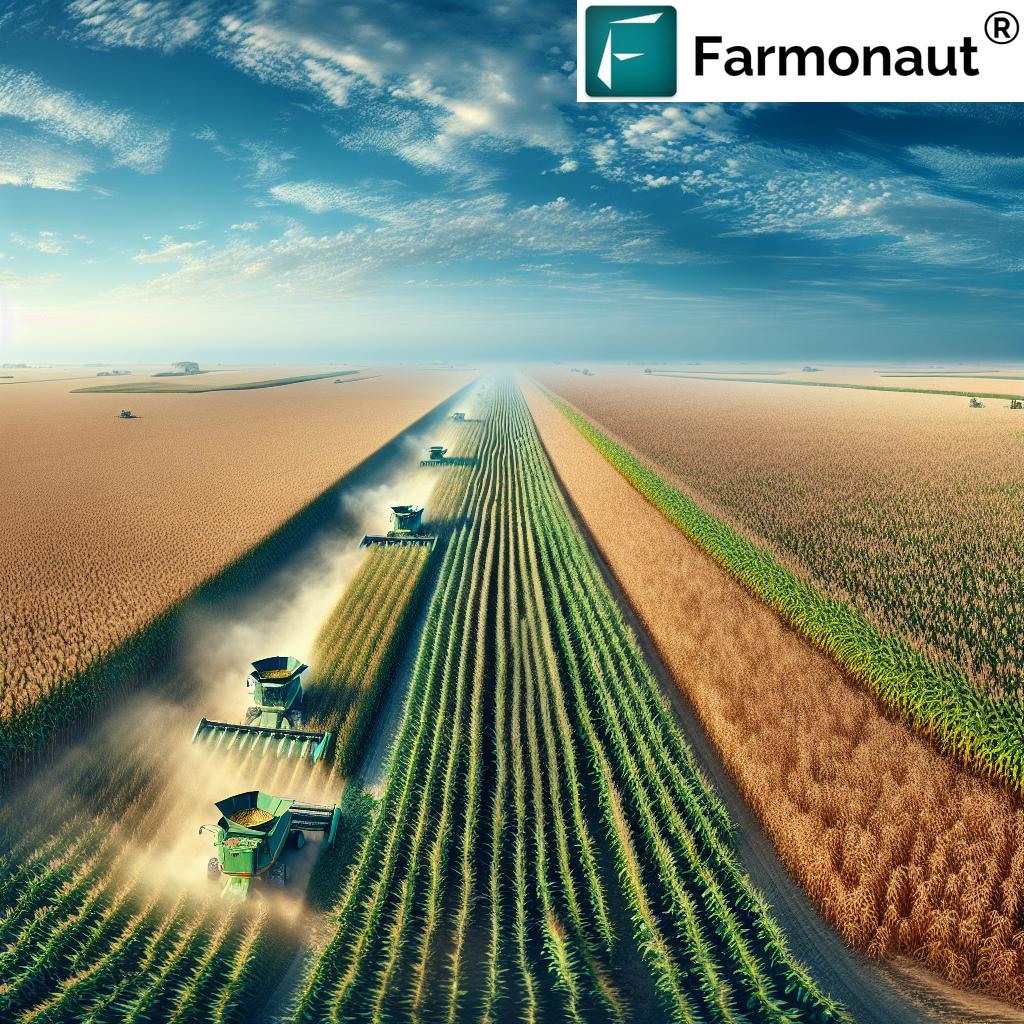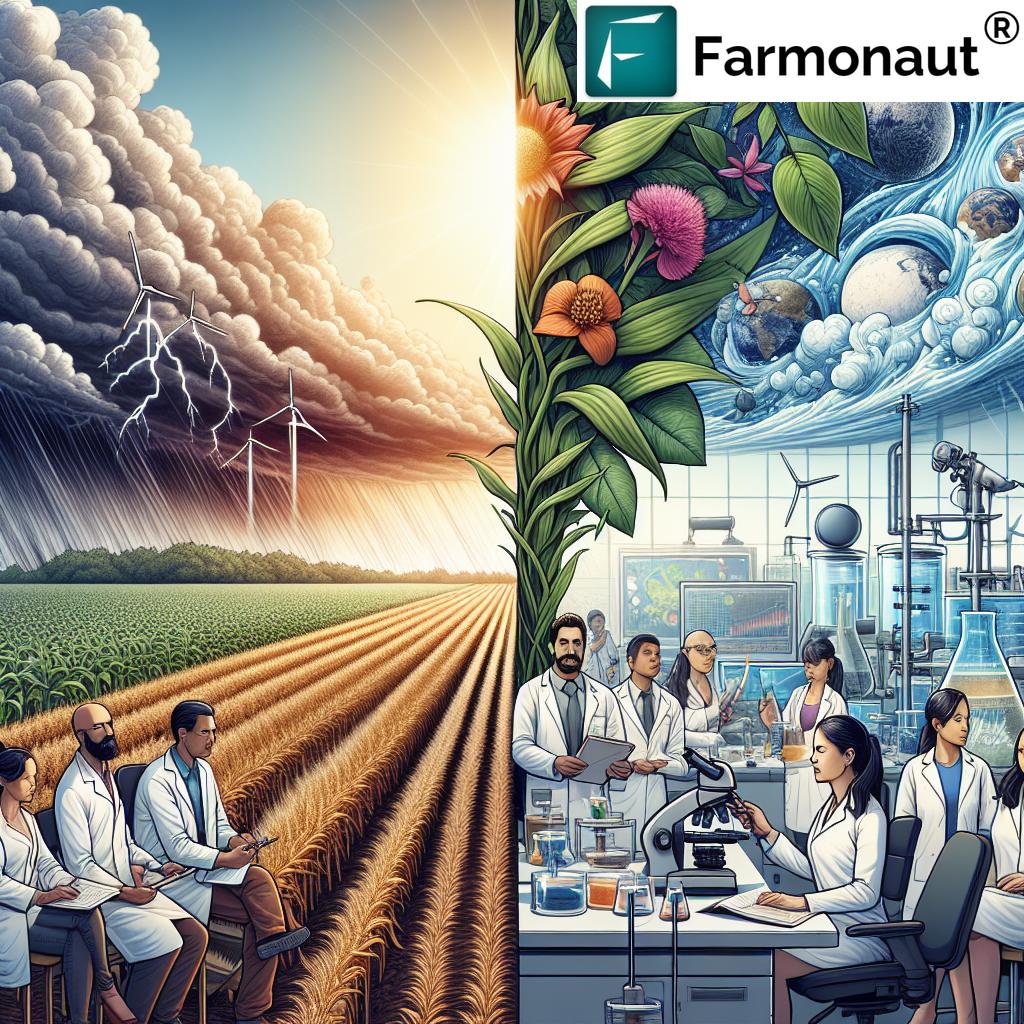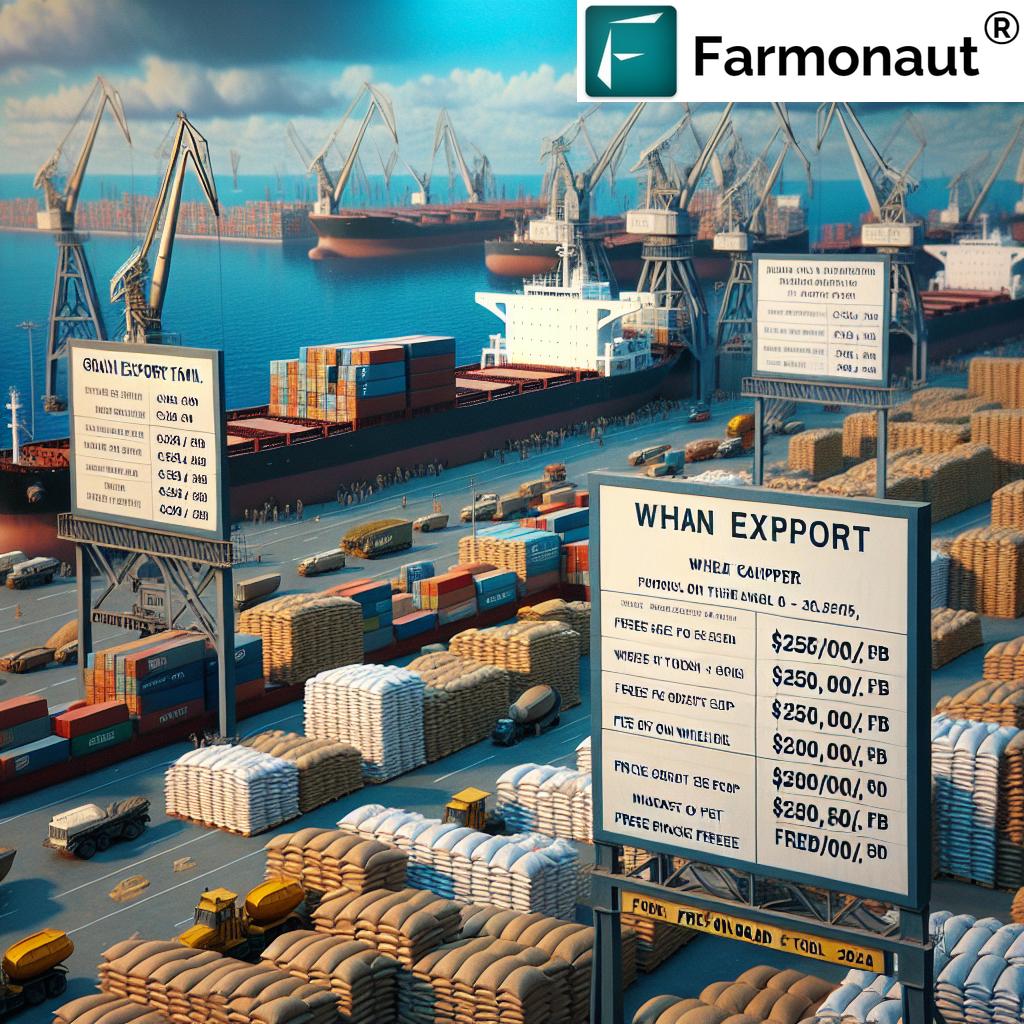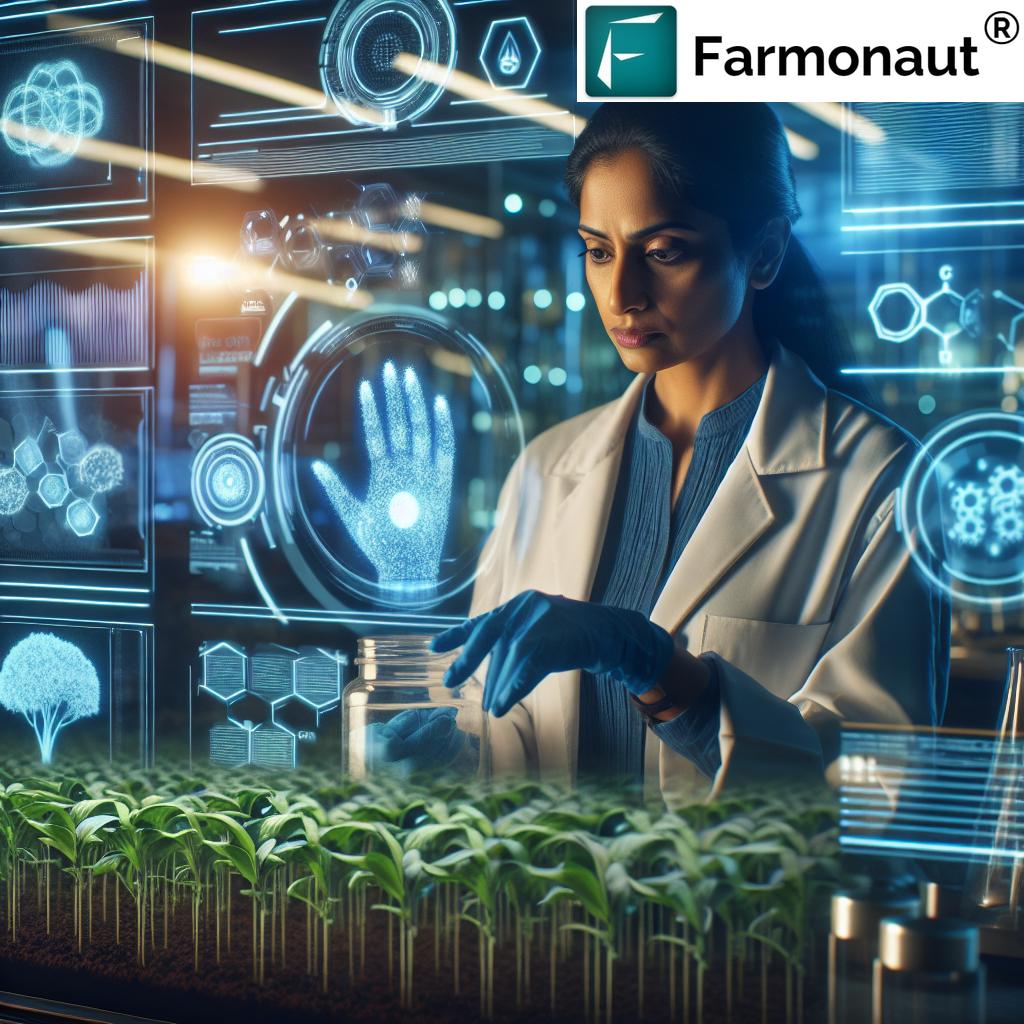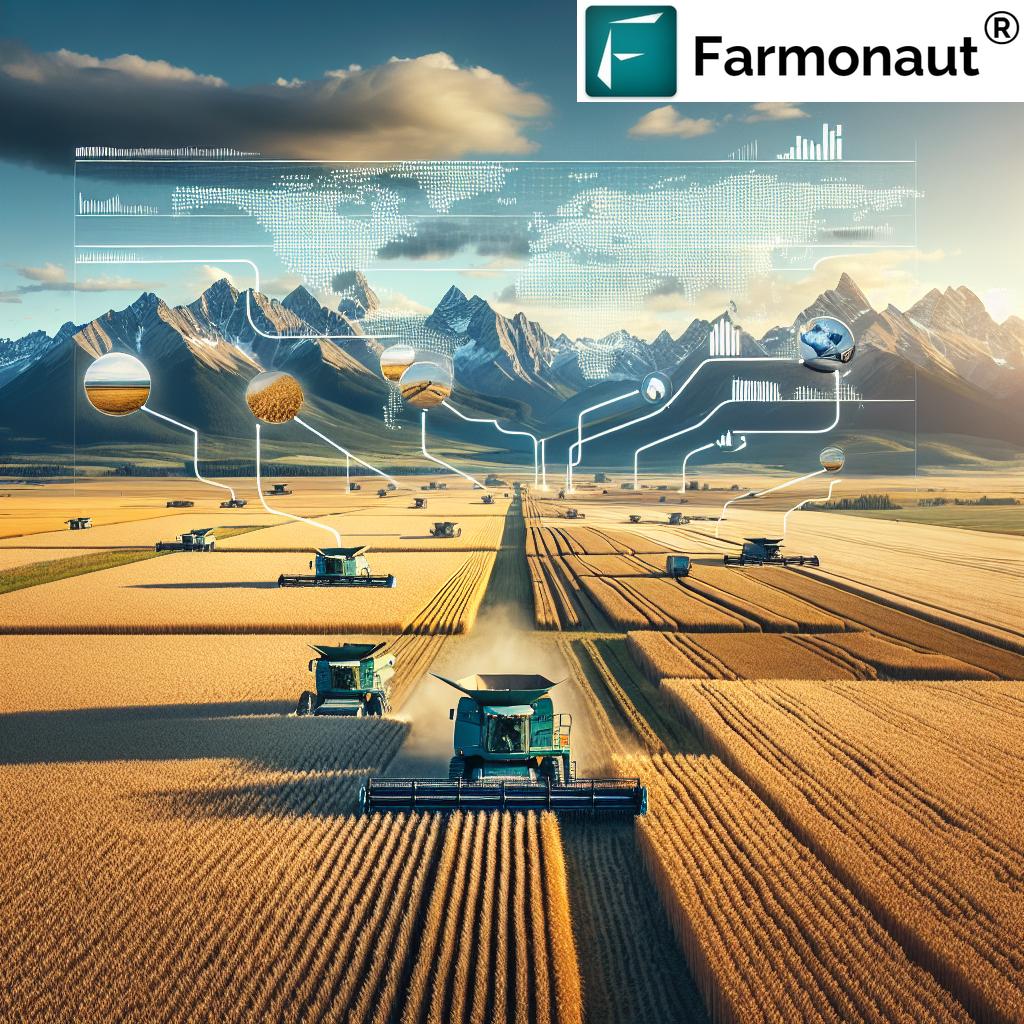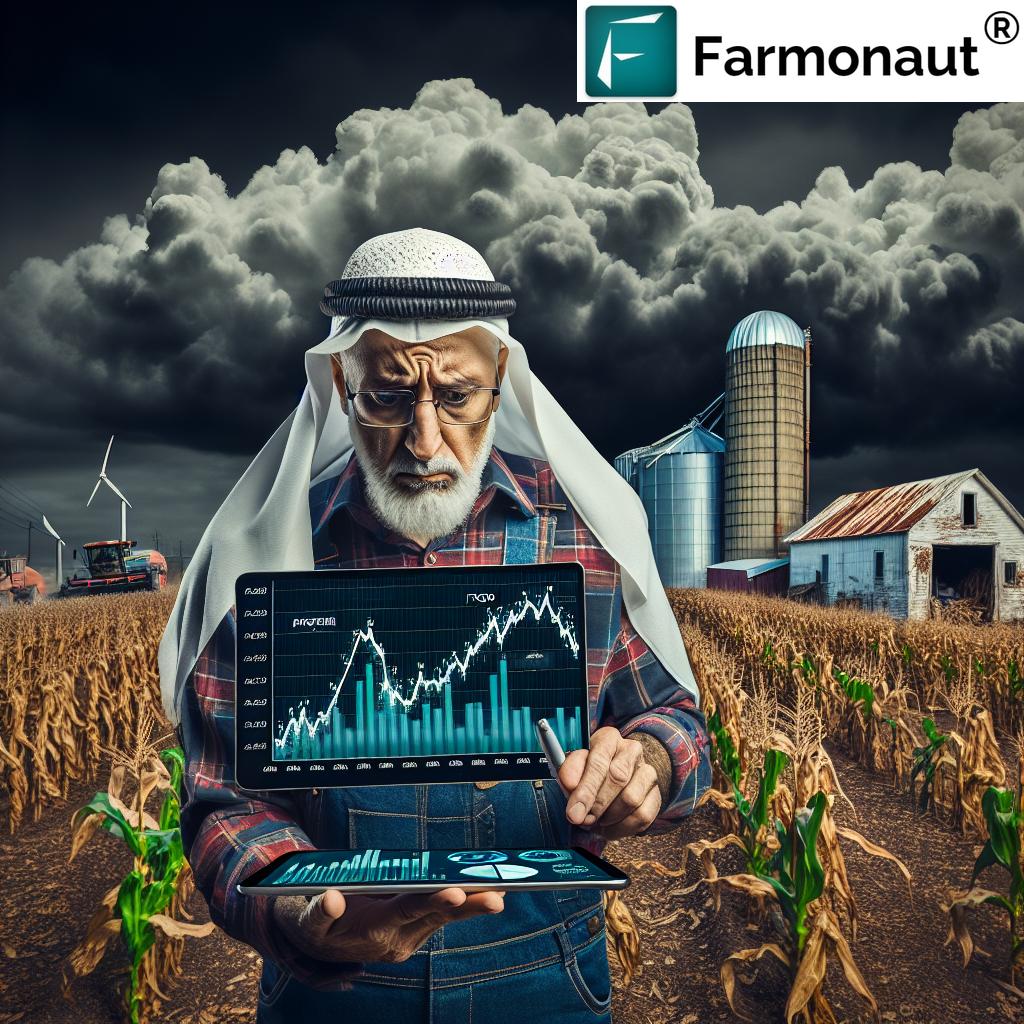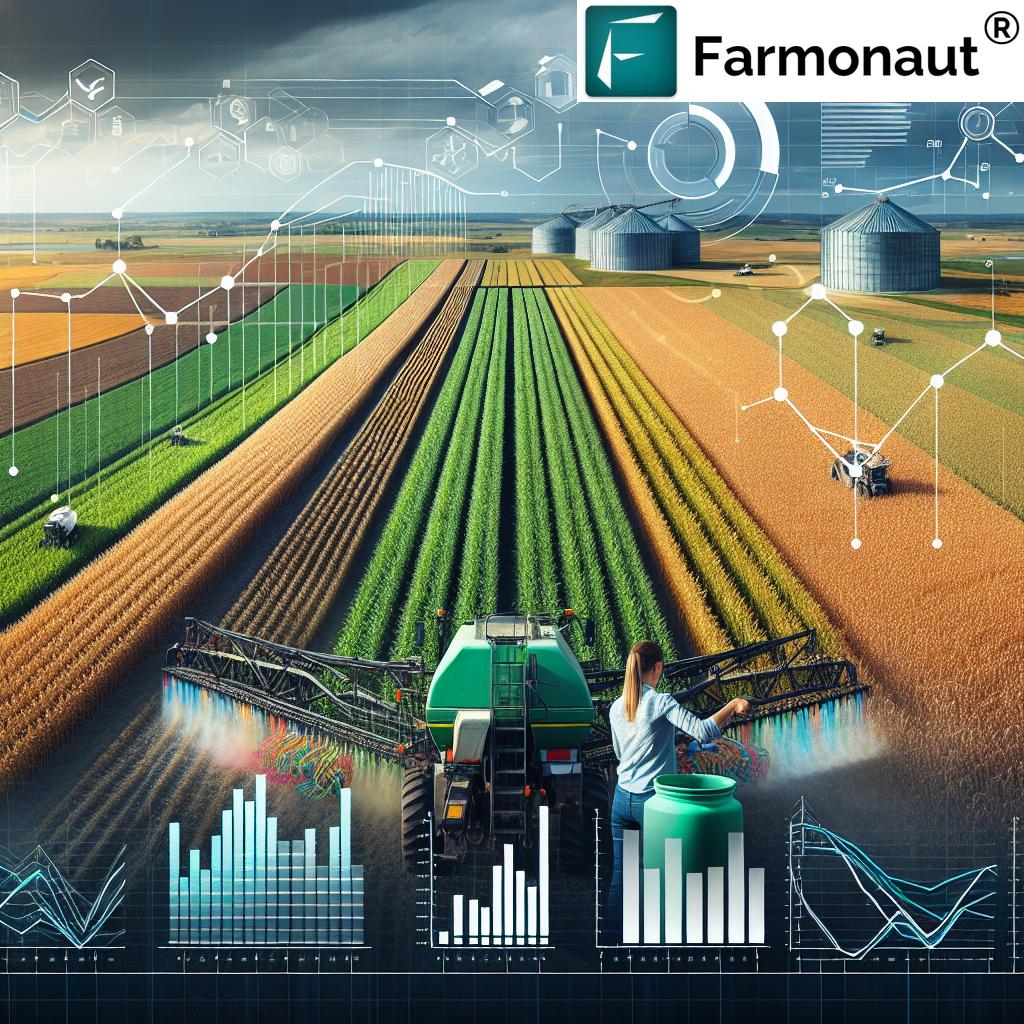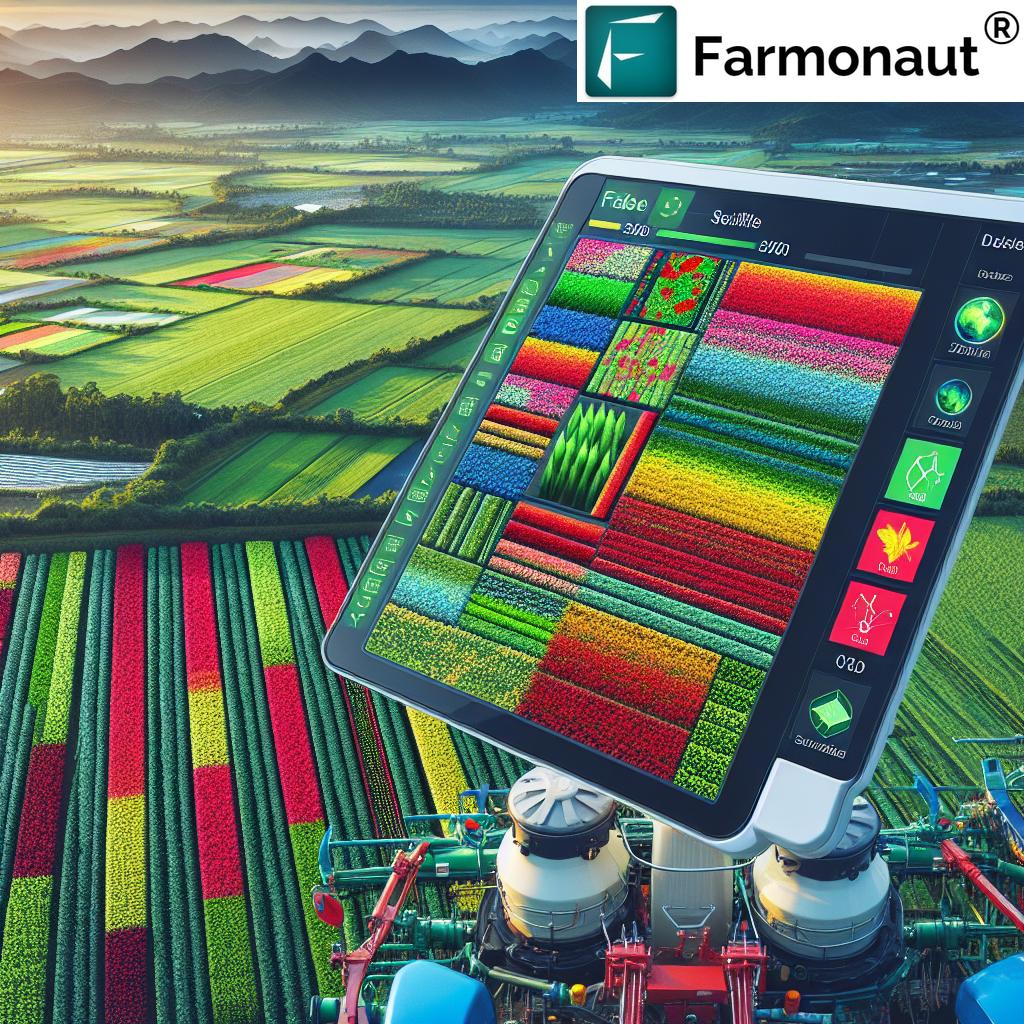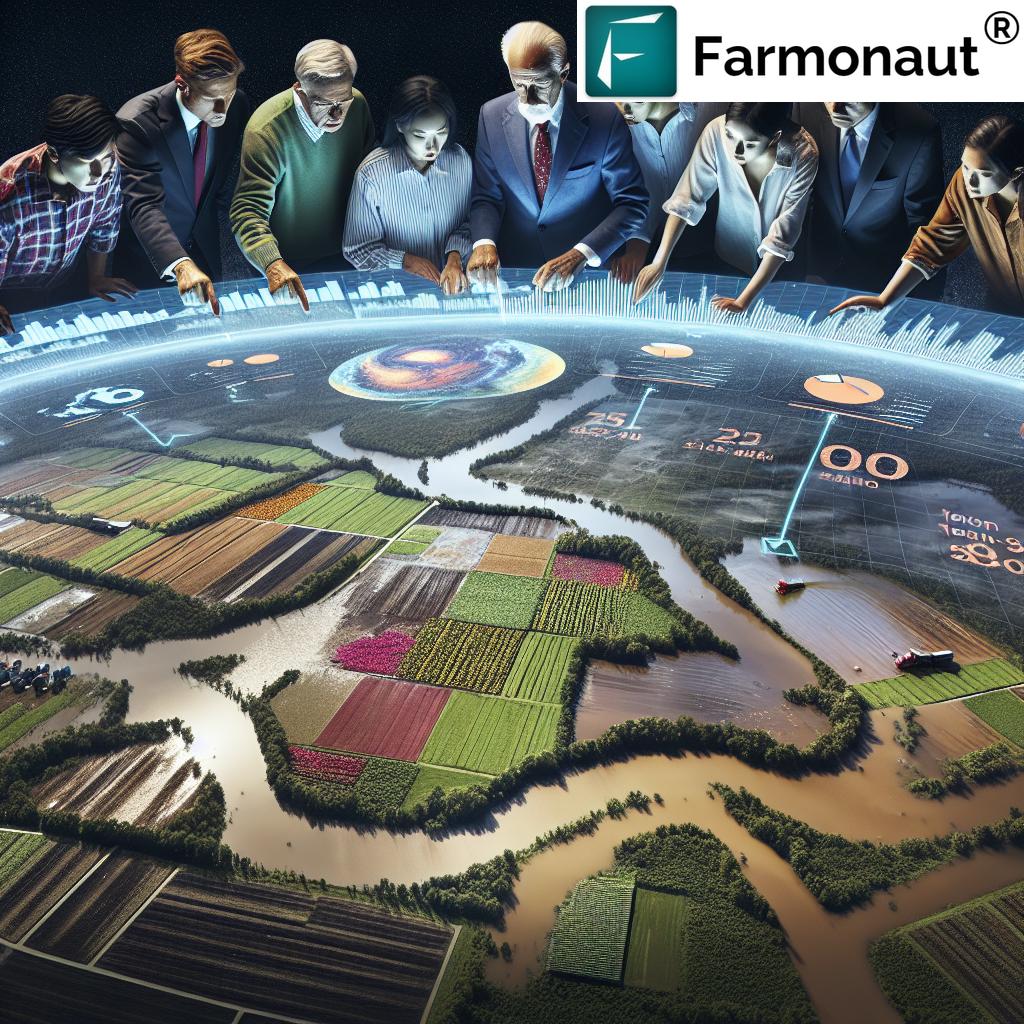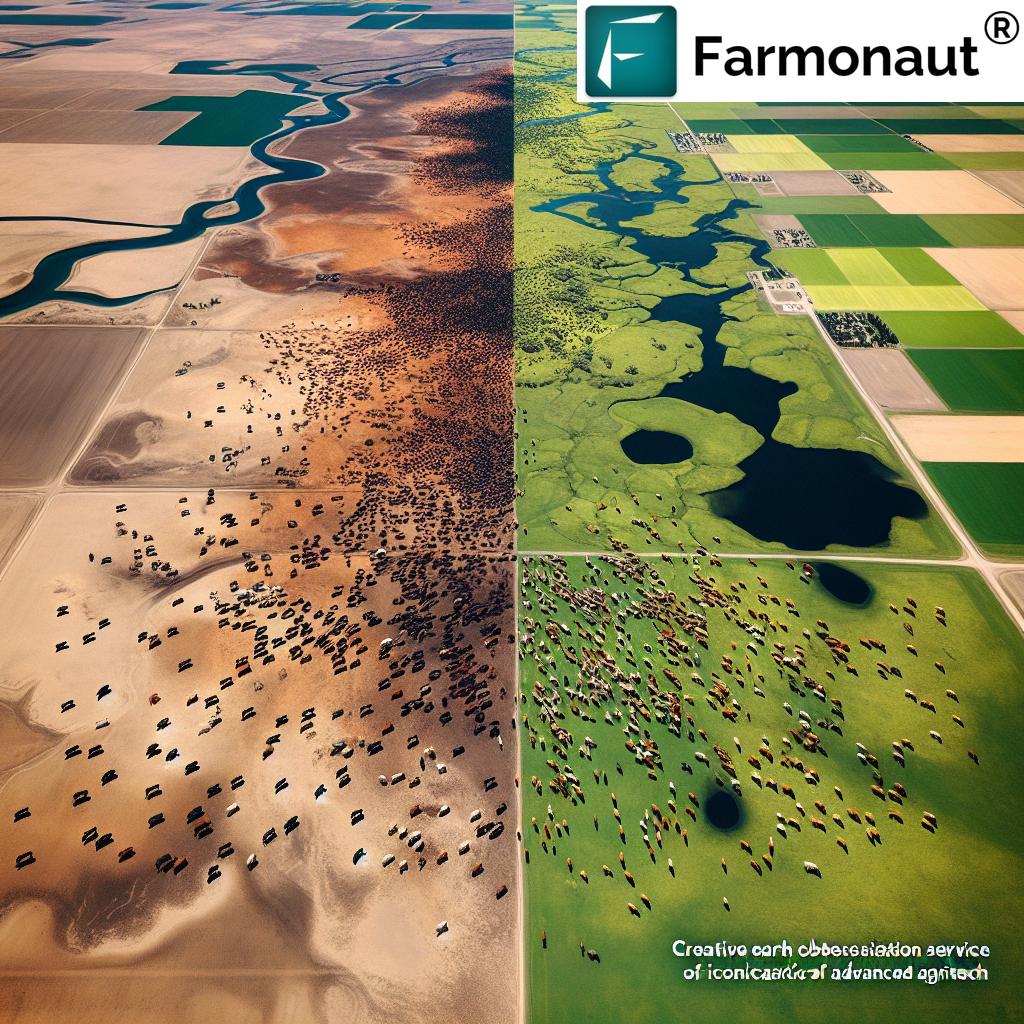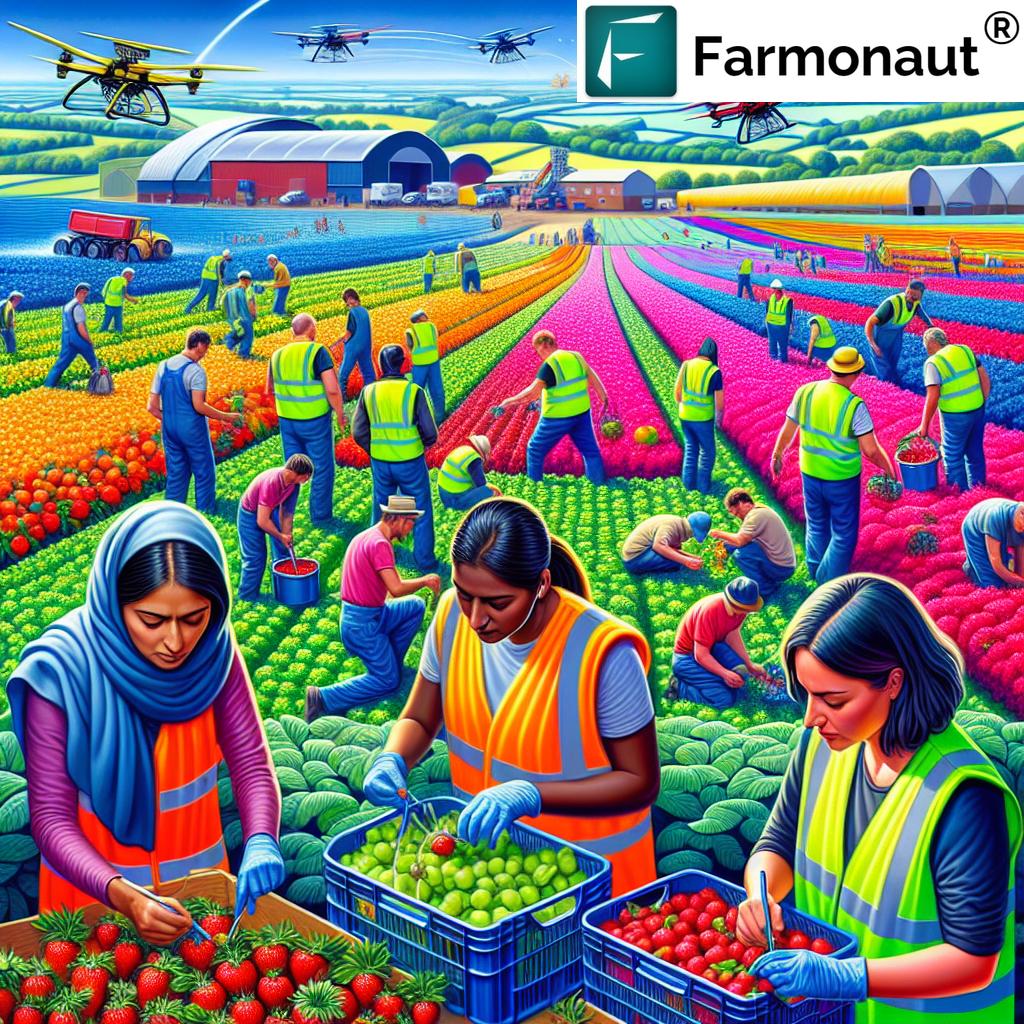Revolutionary Agtech: Self-Driving Tractors and Robotic Fruit Pickers Transform Farming Amid Labor Shortages and Climate Challenges
In the picturesque fields of Homestead, Florida, a quiet revolution is taking place. The once-familiar sight of farmers toiling under the sun is giving way to a new era of autonomous farming, where machines work tirelessly alongside their human counterparts. This transformation is not just a glimpse into the future; it’s a pressing necessity driven by persistent labor shortages and the looming specter of climate change.
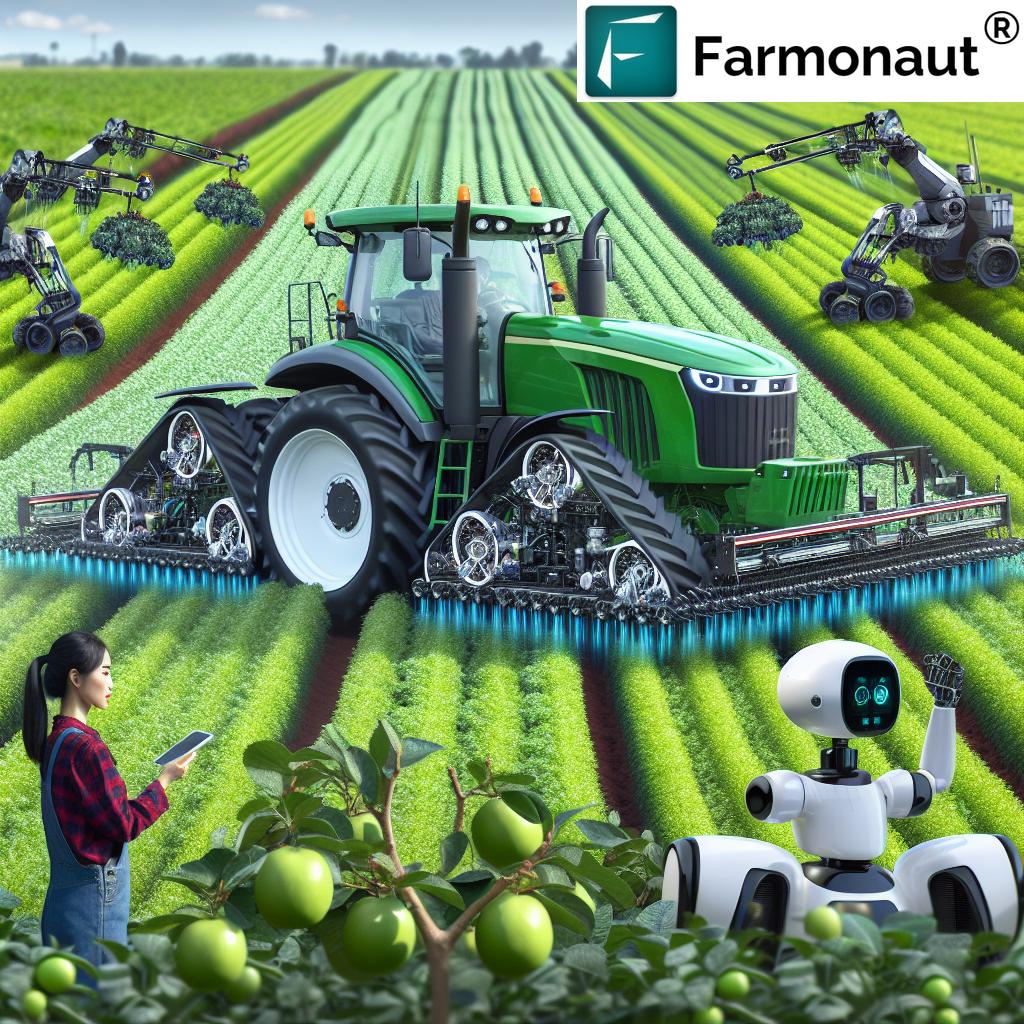
The Rise of Agricultural Robotics
As the sun rises over the lush farmlands, a new breed of workers emerges – not from their homes, but from charging stations. Self-driving tractors and robotic fruit pickers are becoming increasingly common sights in fields across America. These autonomous farming solutions are at the forefront of a technological revolution in agriculture, promising to address some of the most pressing challenges facing the industry today.
The adoption of agricultural robotics is driven by several factors:
- Persistent farm labor shortages
- Rising production costs
- The need for climate-smart farming practices
- Increasing demand for food production
As these challenges intensify, farmers are turning to agtech innovations to keep their operations viable and productive. Farmonaut, a leader in agricultural technology, offers cutting-edge solutions to help farmers navigate these challenges.
Self-Driving Tractors: The Workhorses of Tomorrow
Self-driving tractors for small farms are no longer a futuristic concept but a present-day reality. These autonomous machines are equipped with GPS guidance systems, sensors, and advanced algorithms that allow them to navigate fields with precision. The benefits of these tractors include:
- Increased efficiency and productivity
- Reduced labor costs
- Minimized soil compaction
- Improved planting and harvesting accuracy
John Deere, a pioneer in agricultural machinery, has introduced autonomous tractors that can be monitored and controlled via smartphone. This technology allows farmers to focus on other critical tasks while the tractor works tirelessly in the field.
For those interested in implementing these technologies, Farmonaut’s API offers integration possibilities to enhance farm management systems with satellite and weather data.
Robotic Fruit Pickers: Precision Harvesting
One of the most labor-intensive aspects of farming is fruit picking. Robotic fruit pickers for agriculture are addressing this challenge head-on. These sophisticated machines use computer vision and soft grippers to delicately harvest fruits without damaging them. The advantages of robotic fruit pickers include:
- 24/7 operation capability
- Consistent quality of harvested produce
- Reduced dependency on seasonal labor
- Data collection for yield optimization
Companies like Advanced.Farm are developing robotic arms that can pick apples with the gentleness of a human hand, revolutionizing orchard management.
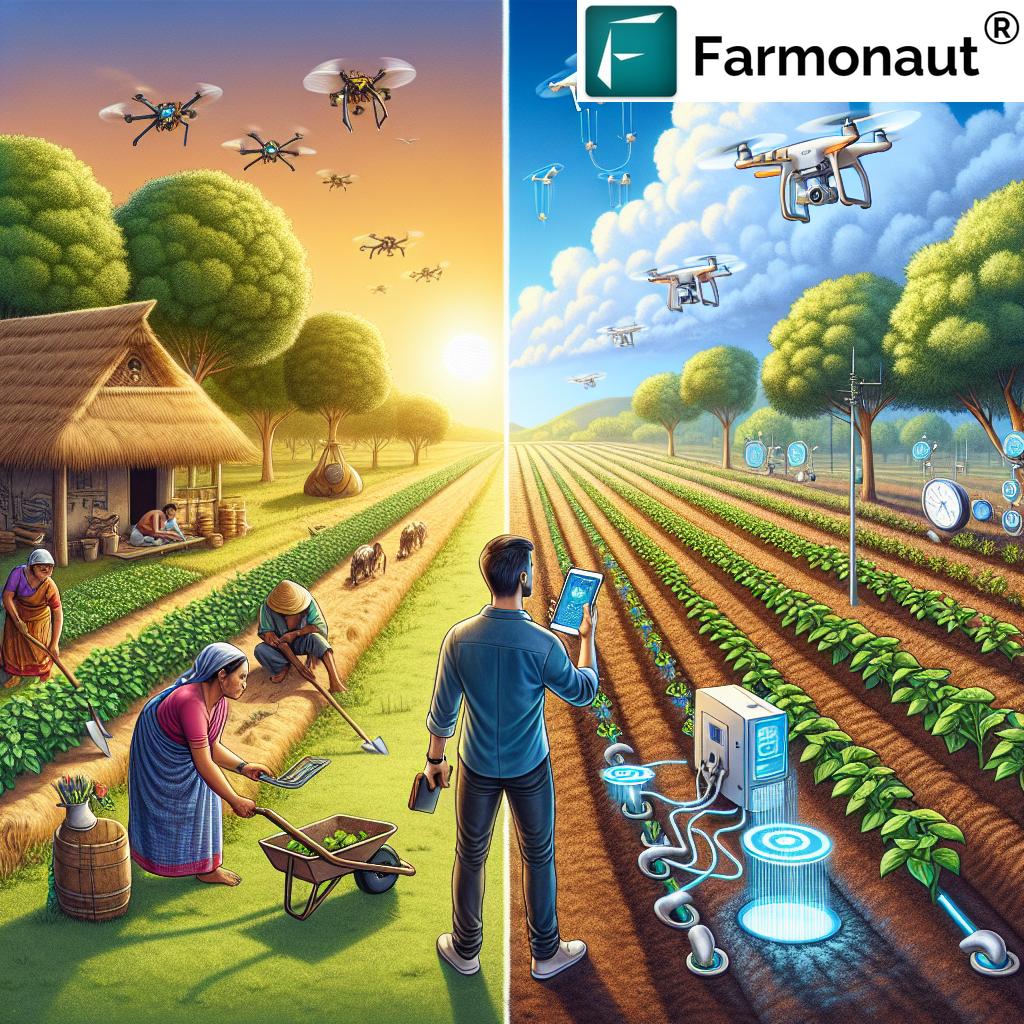
Addressing Labor Shortages with Agtech
The agricultural sector has long grappled with labor shortages, a problem exacerbated by changing demographics and immigration policies. Agtech innovations for labor shortage are providing a much-needed solution. By automating routine tasks, farmers can reallocate their workforce to more complex and value-added activities.
The adoption of agricultural robotics is not just about replacing human workers; it’s about augmenting human capabilities and creating new, high-skilled jobs in rural areas. As farms become more technologically advanced, there’s a growing demand for technicians, data analysts, and robotics specialists in agricultural settings.
To stay updated on the latest agricultural technology adoption trends, farmers can utilize Farmonaut’s Android app or iOS app for real-time insights and management tools.
Climate-Smart Farming: Adapting to Environmental Challenges
Climate-smart farming technology is becoming increasingly crucial as farmers face unpredictable weather patterns and environmental stresses. Autonomous farming equipment plays a significant role in implementing climate-smart practices:
- Precision application of water and fertilizers
- Reduced fuel consumption and emissions
- Improved soil health through minimized compaction
- Data-driven decision-making for resource management
By leveraging these technologies, farmers can not only adapt to climate change but also contribute to its mitigation. The precision offered by autonomous systems ensures that resources are used efficiently, reducing waste and environmental impact.
Precision Agriculture: The Future of Farming
Precision agriculture automation is at the heart of the agtech revolution. This approach uses data from various sources, including satellites, drones, and ground sensors, to make informed decisions about crop management. The benefits of precision agriculture include:
- Optimized use of inputs (water, fertilizers, pesticides)
- Increased crop yields
- Reduced environmental impact
- Enhanced crop quality
Farmonaut’s satellite-based crop monitoring system is an excellent example of precision agriculture in action. By providing farmers with real-time data on crop health and soil conditions, it enables them to make data-driven decisions that improve yields and reduce costs.
For developers interested in integrating precision agriculture tools into their own applications, Farmonaut’s API Developer Docs provide comprehensive guidance.
The Challenges of Agricultural Robotics Adoption
While the potential benefits of agricultural robotics adoption are clear, there are still hurdles to overcome:
- High initial investment costs
- Need for technical expertise and training
- Concerns about job displacement
- Reliability and maintenance of complex systems
For small farm automation, the cost factor is particularly significant. However, as technology advances and becomes more accessible, we’re likely to see more affordable solutions tailored to smaller operations.
The Road Ahead: Integration and Innovation
The future of farming lies in the seamless integration of various autonomous technologies. From planting to harvesting, each stage of crop production will be enhanced by smart, interconnected systems. This holistic approach to farm management promises to revolutionize the industry, making it more efficient, sustainable, and resilient to challenges.
As we look to the future, it’s clear that the agricultural sector is on the cusp of a technological renaissance. The adoption of autonomous farming solutions, robotic fruit pickers, and precision agriculture automation is not just a trend but a necessity for the survival and growth of the industry.
For farmers looking to embrace this technological revolution, tools like Farmonaut provide an excellent starting point. By offering comprehensive farm management solutions, from satellite imagery to weather forecasting, Farmonaut empowers farmers to take their first steps into the world of agtech.
In conclusion, while challenges remain, the potential benefits of agricultural robotics and autonomous farming are too significant to ignore. As these technologies continue to evolve and become more accessible, they will play a crucial role in shaping a more sustainable and productive agricultural future.






